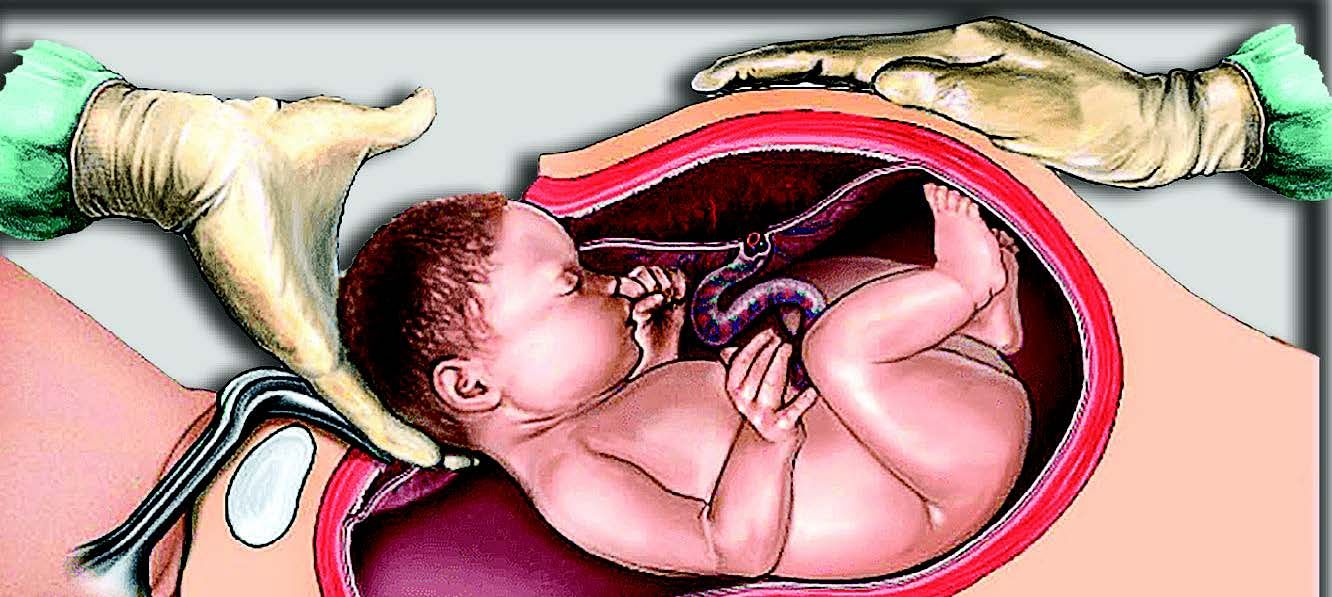There are a lot of myths and misconceptions regarding Polycystic Ovary Syndrome (PCOS), hormonal imbalance and Thyroid disease. There is a notion and social discourse especially among female folk in Kashmir that this hormone issue affects every woman and their ability to conceive. Many believe women who have PCOD and Thyroid have difficulty in conceiving.
But hormonal imbalance, PCOD and Thyroid diseases are very common among girls not only in Kashmir but all over the world. PCOS does not make women infertile.
PCOS (Polycystic Ovary Syndrome) is a medical condition in which the ovaries produce higher levels of androgen than usual, which interferes with development and release of the eggs. Some of the eggs develop into cysts, which are the little sacs filled with liquid. Instead of being released during ovulation, these cysts build up in the ovaries and at times even get enlarged.
PCOS is caused due to multiple reasons including stress, a sedentary lifestyle, interrupted sleep patterns and unhealthy eating habits. Though, there is a treatment for hormonal imbalance. But focus should be on lifestyle.
According to the doctors, If Infertility is caused due to PCOS and thyroids. It is treatable. If women focus on health, these disorders are easily treatable.
Our lifestyle, food adulteration, and fast-food trend has led to an increase in PCOS cases.Women folk should not ignore the warning signs of obesity, Irregular monthly cycles, abnormal increase in body hair in particular to face hirsutism,loss of Hair Alopecia, Acnes, Discoloration of skin.
Doctors suggest a healthy and balanced diet, regular exercise, avoiding late nigh dinners, drinking plenty of waterto prevent PCOS/PCOD.They also advise women to take lot of fibre rich diet.
While many women fear and blame themselves for the condition, however, several factors including genetics are widely believed to play a role in having PCOS.
Even, new research shows it can be common for women to be misdiagnosed with polycystic ovary syndrome.
Research among women and clinicians found confusion over the name PCOS, limited evidence about the condition, and large amount of misinformation online fed into common misconceptions about PCOS.
These myths and assumptions are harming women and standing in the way of appropriate health care.
As per the reports, there are also several other factors and conditions that can mimic PCOS symptoms, such as stress, hormonal contraceptives such as the pill, obesity, thyroid issues (which can affect metabolism), over-exercising and disordered eating.
Mislabelling women with PCOS prevents them from receiving care for their actual issue. Women with PCOS have in-consistent and delayed ovulation, but can conceive naturally.Usually, drugs are used to treat the symptoms of PCOS depending on treatment necessary e.g, infertility or regularisation of periods. These treatments don’t treat the root cause and hence are not curative drugs.
Even Hijama can be used to treat the different conditions of patients with PCOD with good results.Hijama wet cupping therapy have been proven beneficial for Polycystic Ovarian Disease.
According to the Ayush doctors, a large number of young girls have been treated with Hijama cupping therapy.
But many girls are still confused about whether PCOS can be treatable or not, but there are studies that show that significant weight loss can basically cure PCOS.
So, its imperative for every girl to stay away from negative information about PCOS and focus on their health, avoid stress and eat a balanced diet.Ultimately, managing the symptoms can be accomplished by eating healthy and avoiding particular carbohydrates and fats.
Fruits, vegetables, whole grains, and legumes should be favoured over processed foods; one should attempt to eat entire foods that are free of sugar, hormones, and preservatives.Moreover, plant-based proteins and unprocessed high carbohydrates can improve insulin sensitivity. Try to consume more fiber in your diet, reduce the consumption of coffee. Soy, turmeric, cinnamon vitamin-D3, calcium, zinc, primosa oil, and cod liver oil should be added to your diet.
Whether you have PCOS or not, it’s critical to raise awareness of how this condition affects people’s lives. More importantly, let’s raise awareness of available treatments and successful results. If given the proper medicine and lifestyle support, people with PCOS can live full, healthy lives. Like any hormonal issue, PCOS needs to be treated on an individual basis.
DISCLAIMER: The views and opinions expressed in this article are the personal opinions of the author.
The facts, analysis, assumptions and perspective appearing in the article do not reflect the views of GK.






